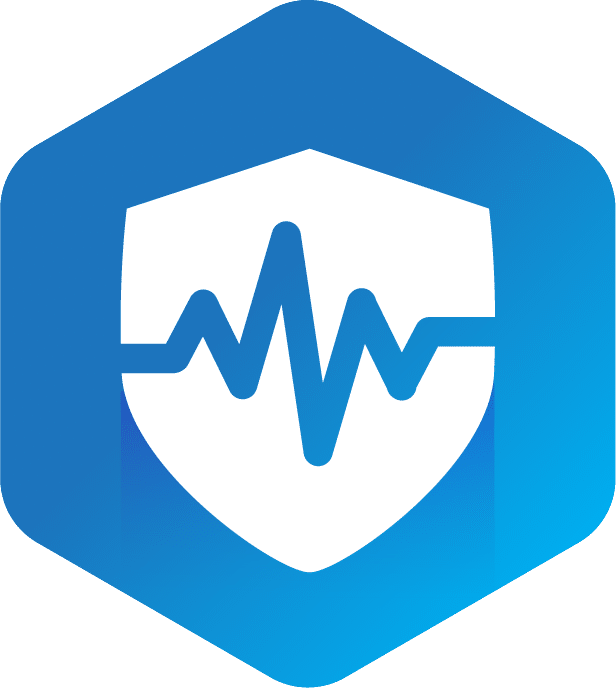While there is no official HIPAA certification, robust compliance training is essential for healthcare organizations. Effective training programs guarantee adherence to stringent standards safeguarding protected health information (PHI). Training should be clear, relevant, and regularly updated to reflect regulatory changes. Customization of training content and the use of diverse tools like live instruction and interactive modules enhance learning effectiveness. Documentation of training activities is vital for demonstrating compliance to oversight bodies like the Office for Civil Rights. Emphasizing a consistent training regimen supports a culture of compliance and minimizes breach risks. Continue exploring for detailed compliance strategies and guidelines.
Understanding HIPAA Certification requires recognizing that there is no official certification endorsed by the Office for Civil Rights or the Department of Health and Human Services, but rather a thorough compliance program that organizations must implement and maintain.
The HIPAA certification process involves adhering to stringent compliance standards designed to safeguard protected health information (PHI). Training effectiveness is paramount in this process, ensuring that all workforce members are well-versed in privacy and security rules.
Workforce engagement is a critical aspect, as training must be extensive and continuous to address new policies, procedures, and technological advancements. Organizations need to adopt varied training tools suitable for their size and nature to achieve and sustain compliance with HIPAA regulations.
Recognizing the absence of an official certification from the Office for Civil Rights or the Department of Health and Human Services, it becomes imperative for organizations to prioritize compliance training to guarantee adherence to HIPAA regulations.
Effective compliance training guarantees that all workforce members are well-versed in the necessary compliance standards, greatly reducing the risk of breaches and non-compliance penalties.
Training effectiveness hinges on the clarity, relevance, and frequency of the training programs, which should be tailored to the organization’s specific needs and size.
Regular and thorough training fosters a culture of compliance, ensuring that employees are consistently updated on new policies, procedures, and security protocols, thereby safeguarding protected health information.
The Office for Civil Rights (OCR) plays a pivotal role in upholding HIPAA compliance by overseeing the implementation of privacy and security regulations. Through robust HIPAA enforcement, the OCR guarantees that covered entities adhere to established standards, thereby protecting patients’ sensitive health information.
The OCR’s responsibilities encompass:
Developing effective HIPAA training programs requires a thorough approach customized to an organization’s specific size and operational needs. Training development must align with compliance strategies to guarantee all workforce members—from employees to volunteers—are adequately informed on privacy and security rules.
A successful program should incorporate various training tools such as live instruction, interactive software, and policy documentation, tailored to the entity’s structure. Additionally, ongoing training is vital, particularly when policies or procedures change. This ensures continuous adherence to HIPAA guidelines, thereby mitigating risks associated with non-compliance.
Documentation of all training activities is essential for demonstrating compliance during audits and assessments, reinforcing the organization’s commitment to protecting protected health information (PHI).
Guaranteeing compliance with the HIPAA Privacy Rule necessitates thorough training for all workforce members who handle protected health information (PHI).
Effective workforce training is paramount to uphold privacy policies and meet HIPAA privacy requirements. Training should address the following key areas:
Effective security training is paramount for safeguarding sensitive health information and ensuring compliance with the HIPAA Security Rule. Security rule implementation mandates that covered entities establish thorough training programs for all workforce members. This encompasses new hires and existing staff when policies or procedures change.
Workforce engagement is critical; employees must understand their roles in maintaining data security. Regular training sessions should integrate auditing procedures to identify vulnerabilities and guarantee adherence to established protocols. Additionally, compliance monitoring should be ongoing to promptly address any breaches or lapses.
These measures collectively fortify an organization’s defense against potential security threats and ensure continuous alignment with HIPAA regulations, enhancing the overall integrity of protected health information.
Organizations frequently require a diverse array of tools to conduct effective HIPAA compliance training tailored to their specific needs and workforce size. Essential tools include:
These tools ensure that training is thorough, accessible, and aligned with regulatory requirements. Utilizing a combination of these methods can significantly enhance the effectiveness of HIPAA compliance training, ensuring that all workforce members are well-informed and capable of protecting sensitive health information.
Proper documentation and meticulous recordkeeping are fundamental to maintaining HIPAA compliance and guaranteeing that all training efforts are verifiable and traceable. Adhering to stringent recordkeeping guidelines ensures that organizations can demonstrate compliance during audits or investigations.
Training documentation requirements mandate that covered entities retain records of all training sessions, including dates, attendees, and the content covered. This thorough documentation aids in verifying that workforce members have received necessary training on privacy and security policies.
Accurate recordkeeping not only fulfills regulatory obligations but also fosters a culture of accountability and transparency. Organizations must implement systematic processes to regularly update and review training records, ensuring they remain current and complete.
Regular training sessions should be conducted at least every other year to guarantee workforce members remain updated on HIPAA regulations and organizational policies. This ensures training frequency is sufficient for best retention of critical information.
Regular sessions are essential for effective compliance audits and ongoing monitoring. To maintain high standards, organizations should:
Selecting the most effective training method is critical to guaranteeing that all workforce members fully comprehend and adhere to HIPAA regulations. Organizations must evaluate their unique needs to choose between interactive workshops and online modules.
Interactive workshops provide a hands-on approach, fostering engagement and immediate feedback, ideal for teams preferring direct interaction. Online modules offer flexibility and can accommodate varying schedules, making them suitable for larger or distributed workforces.
Both methods must be designed to cover essential topics, including privacy and security rules, to ensure thorough understanding. The choice should align with organizational goals, workforce size, and learning preferences to optimize compliance and foster a culture of privacy and security awareness within the entity.
Engaging professional assistance for HIPAA compliance training can greatly enhance an organization’s ability to meet regulatory requirements effectively and efficiently. Professional support guarantees that training programs are thorough and up-to-date, while expert guidance helps navigate complex regulations.
The benefits of leveraging professional assistance include:
HIPAA certification and compliance training are crucial to safeguarding PHI and maintaining patient trust. Effective training programs, tailored to organizational needs, are essential for adherence to privacy and security regulations.
The OCR mandates thorough and documented training for all workforce members. Interestingly, a study revealed that organizations with regular HIPAA training experienced a 30% reduction in data breaches.
Professional assistance from entities like HIPAA Associates can greatly enhance compliance efforts, ensuring strong understanding and implementation of HIPAA guidelines.

